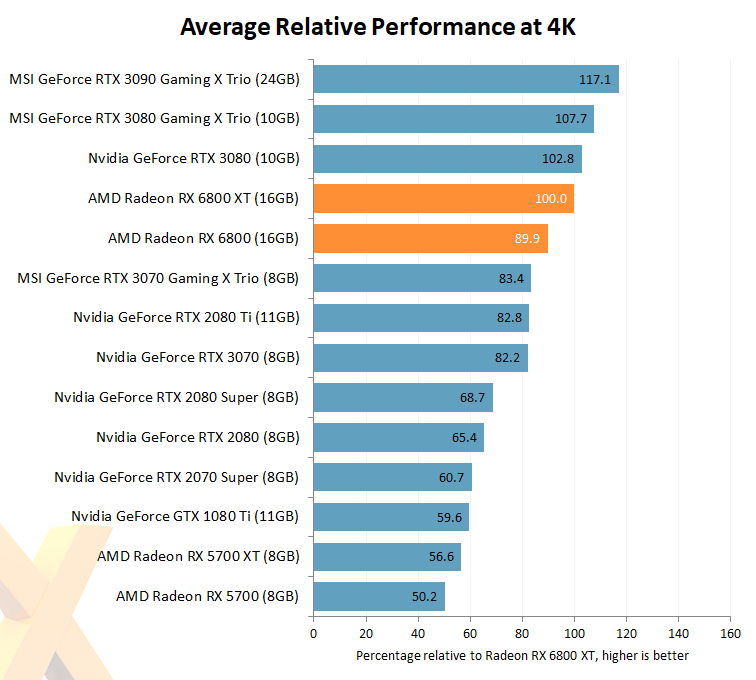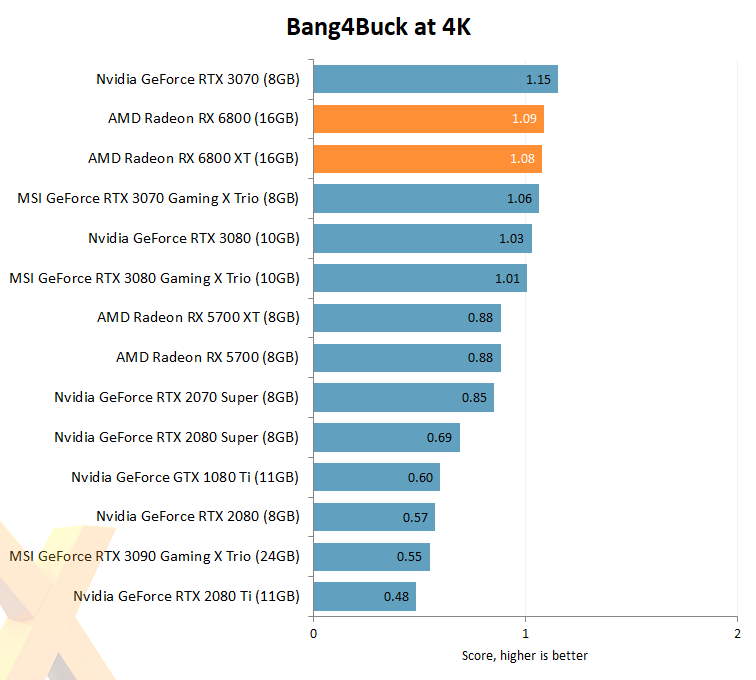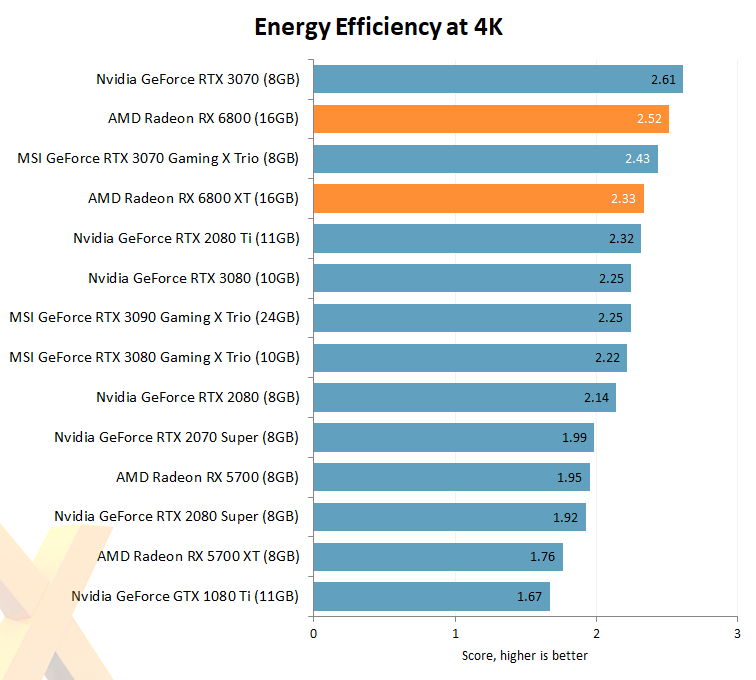Average Relative Performance, Bang4Buck, Bang4Watt

Looking at the relative 4K performance of each card and normalising numbers to the Radeon RX 6800 XT across seven rasterisation titles gives greater insight into how everything really stacks up.
Our findings suggest RTX 3080 FE is marginally faster, helped mostly by doing comparatively well in Civ VI: Gathering Storm. Nevertheless, it's a close call.
Radeon RX 6800 is about 10 per cent slower than the XT part. That's enough to make it consistently quicker than RTX 3070, as it should be considering it costs more.

We can also tease out rudimentary comparative value and energy efficiency by looking at performance and evaluating it against power consumption and price.
Taking the same relative performance in the first graph and plotting it against the dollar SRP - which in times of stock constraint is only a guide - gives us the following graph. It's the relative positions that are important, not the absolute score.
RX 6800 is faster than RTX 3070 but it is dearer by a larger degree - $579 vs. £499. This is why the Nvidia card tops the charts. With RX 6800 XT being $50 cheaper than RTX 3080 FE on paper, Nvidia gets pipped to that comparison value post even though it is a bit faster.

AMD's Radeon RX 6800 XT is able to deliver a better energy-efficiency metric because of its lower TDP - 300W vs. 320W, which overcomes its slight performance deficit. RX 6800's 250W plays even better here, but it can't leap ahead of the 220W RTX 3070 FE. The Radeon's better performance is not enough to make up for those additional 30 watts.
But take another look back at the charts on this page. AMD's right in the mix with the RX 6000 Series.









